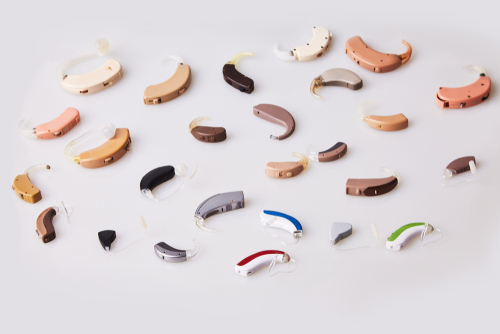Many people over the age of 60 start to experience hearing loss due to the natural process of aging. Although there is no single cause for age-related hearing loss, there are several risk factors that contribute to it. Some of the most common factors include:
- Genetics
- Exposure to extreme noise
- Smoking
- Diabetes or other health issues
- Medications
How does age-related hearing loss happen?
Damage to the tiny hairs inside the ear causes hearing loss because it helps transfer sound to the brain. They pick up sound and translate them into nerve signals that the brain interprets and tells you what you are hearing.
These hair cells may become damaged from noise exposure, or even through the normal aging process. When hearing loss occurs during aging, it often happens to both ears. This can either occur slowly over time or quickly.
It can be difficult to transition from hearing perfect to living with hearing loss. You may feel worried or embarrassed when you start to lose your hearing. You may feel like people will judge you as being too old to take part in life. This is completely untrue and there is nothing shameful about experiencing hearing loss.
Hearing Loss can cause strong emotions
It’s okay to have feelings of anxiousness, anger, and helplessness. Take time to talk to others about how you are feeling. They can help support you during this transition in your life.
Hearing loss is not something you want to ignore. It can affect your quality of life unless you find ways to manage it.
- You might feel stress and anxiety because it is difficult to engage in conversations.
- Communicating during work becomes a challenge, you fear repercussions for missing vital information.
- You may blame yourself for not hearing will and missing out on social conversations.
- You can become depressed, isolated, and anxious which can lead to severe health and mental problems.
It is normal to want to go into denial about your hearing loss. However, it is important to know that you have support and options for improving your hearing health. Keeping your hearing loss to yourself is harmful to your health. People who struggle with hearing loss are more likely to experience health problems, such as dementia and cognitive decline.
Hearing Aids can Help
The good news is that the earlier you get treatment and support, the better your overall hearing and health will remain in great condition. You will enjoy life to the fullest with proper treatment. If hearing aids are necessary, they will help you be more sociable and keep your mind healthy and stimulated.

Tips for Family Members
If you know someone who is struggling with hearing loss, here are a few tips to make them feel supported.
Speak their name to get their attention. Face them when you speak, wave your hand or give them a light tap on the shoulder to gain their attention.
Minimize Background Noise – Choose a quiet location to have a conversation or eliminate as much background noise as you can. This includes music, tv or even the dishwasher. When in public, find a quiet corner of the room so everyone can enjoy the conversation.
Remind others to speak one at a time –In group settings, remind everyone to speak one at a time and to make sure they are speaking clearly. Having multiple conversations at a time can make it overwhelming and confusing for the hearing-impaired person.
Speak loudly and clearly – Make sure you are speaking clearly, but don’t exaggerate your talking. You don’t need to shout but you might raise your voice a little. Speak at an even speed so the person can understand you without having to ask.
Repetition may be necessary –When having a conversation with someone who is struggling to hear, it is important to understand that they may not comprehend what you are saying the first time. You may need to repeat yourself and ask if they understood. Try remaining consistent with what you say. It can help keep the person from getting confused.
When conversing with someone who has hearing loss, it’s important to
Use visual cues – When someone has a difficult time hearing, good lighting and visibility can help provide visual cues to understand what is being said. Always face the person directly when speaking. Maintain eye contact and use hand gestures.
Practice Patience – Try to be understanding and patient when talking to someone who is hard of hearing. If you feel you are becoming frustrated, take a deep breath and consider how difficult the situation is for them.
El Dorado Hearing can Help
If you or your loved one are struggling with hearing loss because of aging, visit our website at Hearing Loss Tucson, AZ | Causes & Treatments.
Making an appointment with our audiologists to manage your hearing loss will improve your overall quality of life. We will get the right diagnosis and will help you understand the cause and how to treat your unique situation.
Hearing loss doesn’t have to affect your quality of life. With a comprehensive hearing plan, you will be able to continue the lifestyle you love.




Leave a Reply